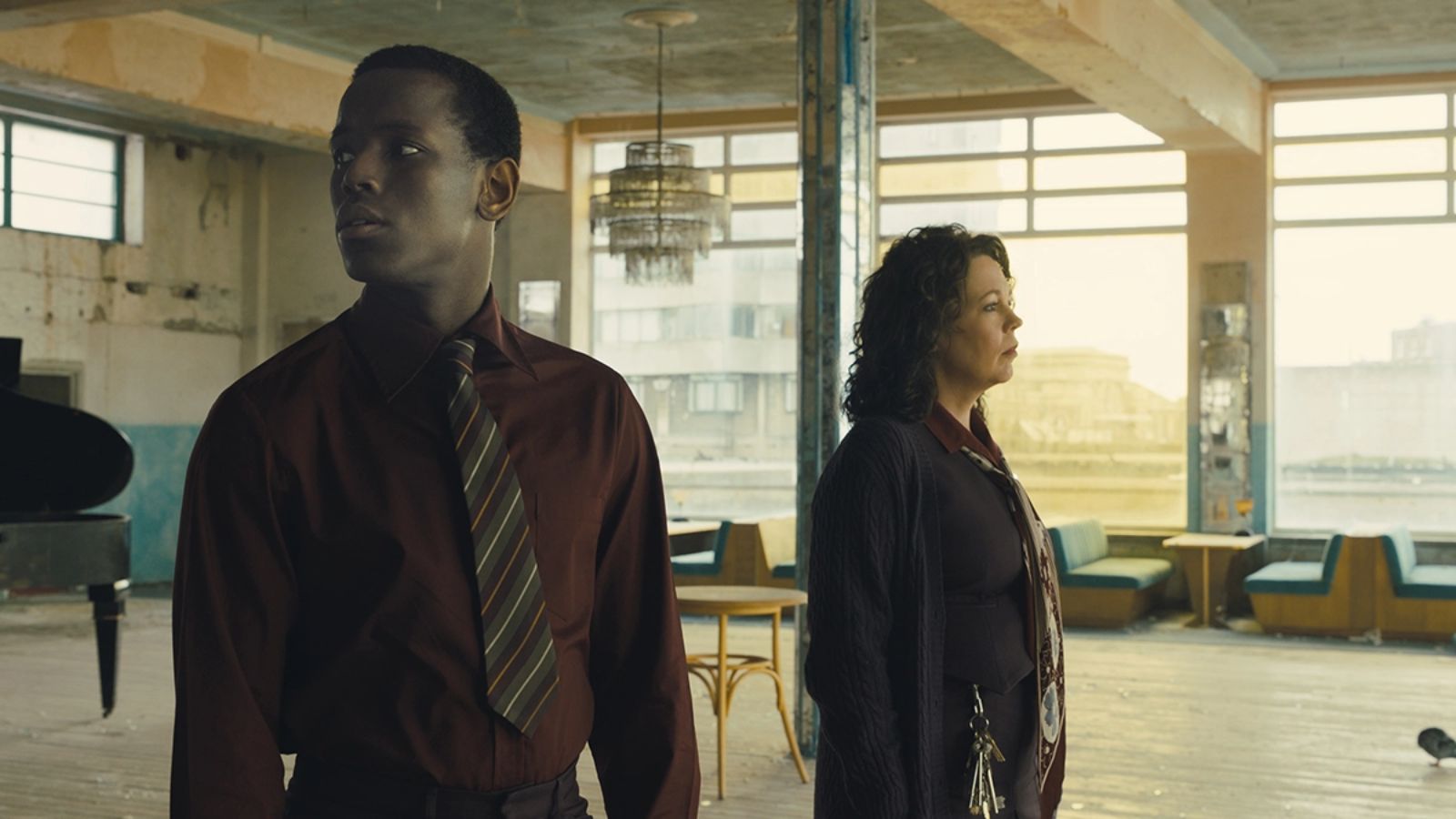Any movie about the value of movies should be met with a healthy level of skepticism. There’s the obvious amount of self-satisfaction involved (maybe it’s just me, but two hours of tooting one’s own horn doesn’t sound like the greatest way to spend that time), plus the inherent clashes with both the medium and reality itself. Using a visual artform to tell viewers about its magical nature goes against the whole “show, don’t tell” advice, and given the current state of cinema there’s a point where these kinds of assertions can come across as insisting everything’s fine while bleeding out. There are plenty examples of great movies about cinema, but it’s a subject that can easily backfire, as it does in Sam Mendes’ Empire of Light.
To be fair, Mendes’ film isn’t especially sentimental when it comes to the topic of cinema, though there are a few indulgences. Its central location of the Empire, a seaside theater in Southern England, functions as a communal point of escape for audiences that’s held steady over the years. Hilary (Olivia Colman) manages the front of house and concessions while leading a solitary life outside work, with mental-health issues her doctor keeps a close eye on. She also has to deal with her predatory boss Mr. Ellis (Colin Firth), as he uses her for sexual favors in his office when the rest of the staff sets up for the day. Things change for Hilary with the arrival of new hire Stephen (Micheal Ward), a young man who quickly bonds with her and starts a romance.
Hilary and Stephen’s bond, if strong and sincere, exists within the walls of a building meant to host all kinds of escapes from reality, and once they take things outside the Empire their relationship starts to deteriorate. Mendes’ decision to let his story jump off from the theater rather than make all roads lead to it is refreshing at the very least—it positions moviegoing as an important part of people’s lives rather than something vital. But the connections he makes between the Empire’s staff and what they work with is tenuous at best, usually whittled down to passionate monologues by Stephen or the theater’s projectionist (Toby Jones) and stating the obvious: cinema is an escape, an optical illusion of moving pictures that lets us enter a different world for a short amount of time. All of this is understood but never felt, and Mendes’ practical placement of cinema in these characters’ lives makes these themes mutually exclusive.
Luckily for Mendes, he has a knack for surrounding himself with strong collaborators that make some of his poorer choices go down easy. Colman continues to show off her immense talents, giving Hilary a lot more nuance than her character has on the page while single-handedly lifting the whole film as close as she can to the emotional highs it’s aiming for. Ward also makes for a compelling co-lead, and it speaks to his strengths that, after Mendes reduces his character to a political prop—a skinhead rally in town leads to Stephen getting brutally beaten for being black, an attempt by Mendes to draw parallels with today’s Black Lives Matter movement that has all the finesse of Tate Taylor’s The Help—Ward manages to come away from such bad writing unscathed. Other crew members, like legendary cinematographer Roger Deakins and composers Trent Reznor and Atticus Ross, do fine work as well, helping the film along. But up to a point, given the flawed material they’re working with.
Empire of Light combines a love story, a young man’s coming-of-age, a portrait of a tumultuous Britain in the 1980s, a drama about mental illness, and an ode to cinema within its limited setting. It’s a lot of elements Mendes wants to balance out with the escapism of movies as a sort of benevolent constant when it all adds up to a well-crafted but unsatisfying mish-mash of ideas. Empire of Light would like to remind us of the power of movies when it does a far stronger job recalling better ones.
Empire of Light screened at the Toronto International Film Festival and opens on December 9.

